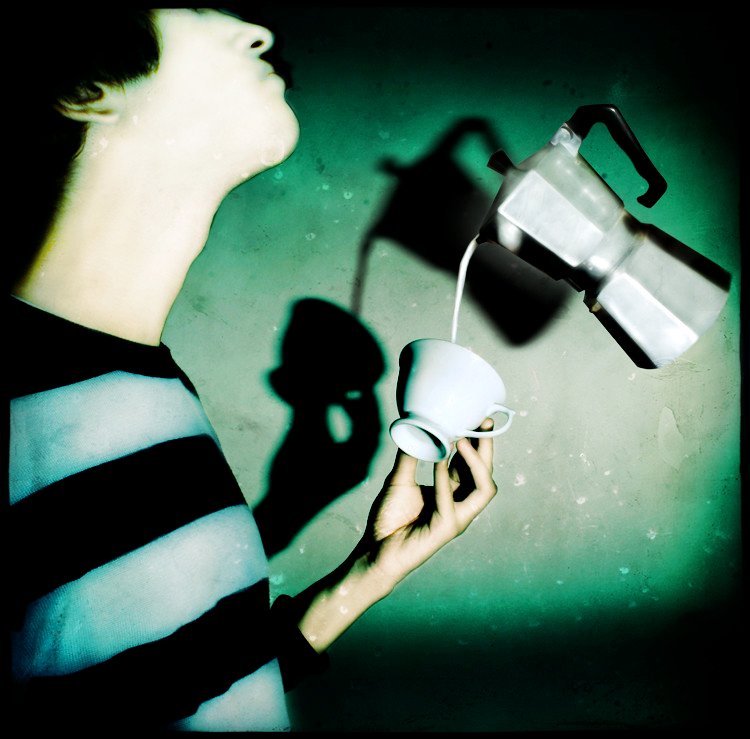Do you feel sleepy in the morning when you have not had your coffee, or maybe you have heard commercials for coffee companies that say the morning is not yet complete without their morning coffee! Well, true that the morning is not the same without that morning coffee so we can confirm that there is a love for coffee all over the world.
The British Coffee Association says that an average of 2 billion cups of coffee are consumed everyday worldwide and there is a high chance that you are one of those people who make up that numbers. So then, people are forced to ask if with such love for coffee or in some cases addiction for coffee, is there a harmful level of coffee, and the answer is "YES".
![]()
We know that drowsiness comes from the chemical known as Adenosine which is released as a result of work and brain usage which then triggers the body at the adenosine receptor which tells the body to rest. With coffee taken, caffeine which has similar structure to adenosine sticks to the adenosine receptors preventing adenosine from interacting thereby leading to wakefulness.
Once caffeine is in the body, it results in the production of adrenaline which is the fight or flight hormone and it results in a sudden burst of hormone thereby increasing heartbeat, expands air passages in the lung and increases blood pressure so as to increase blood circulation among other things that it does to the body. While it is at it doing this, it also leads to the production of the feel good hormone dopamine.

Caffeine affect other parts of the body, asides from the brain. It has been shown to improve physical performance with exercise which was why athletes are banned by the National Collegiate Athletic Association if 15 micrograms per milliliter of caffeine is seen in their body. Taking caffeine also led to banning in the Olympics between the year 1984 to 2004. It has been shown to enhance performance in longer exercise as it increases work output as well as exhaustion time. At the same time reducing pain, and force loss in resistance exercise like weight lifting.
While you are enjoying your coffee non-stop, the brain knows that caffeine has taken over the adenosine receptor thereby preventing adenosine from binding to its receptor, so it begins to create more adenosine receptors. This is why more and more cups are needed to keep you awake over time. Without caffeine in the body after continuously flooding it, there are always withdrawal symptoms such as sleepiness, as well as headache and nausea. Other side effects of taking coffee excessively is that energetic feeling that keeps you jittering, it can also lead to insomnia, restlessness, dehydration, headache, gastrointestinal distress, anxiety, and rapid heartbeat.

In August 2007, Jasmine Willis, a 17 year old girl, had little sleep and needed to work at her father's sandwich bar. She decided to keep herself awake with coffee which was a bit more powerful than the regular coffee.She decided to have a double espresso to perk her up, and trust that the coffee did the trick. By Afternoon, she began to laugh uncontrollably and was sent home. After that, she began to experience increased heartbeat, fever, and struggle to breath. It became evident that she had overdosed on caffeine, but how much do a person need to drink to overdose on it, that is 150ml per kg of body weight. Willis experienced this effect because she was a first time drinker of coffee, she was 17 years old, and was drinking a double espresso coffee. Actually, she was fine after being admitted to the hospital.
Actually, getting overdosed on caffeine from coffee can be near to impossible for adults unless one is drinking a double espresso in many cups which means one is taking more than the normal cup of coffee. It is important to state clearly that taking everything in excess can be harmful including water, so everything should be taken with measure.
Post Reference
https://science.howstuffworks.com/caffeine4.htm
https://www.healthline.com/health/caffeine-effects-on-body#Central-nervous-system
https://thebrain.mcgill.ca/flash/i/i_03/i_03_m/i_03_m_par/i_03_m_par_cafeine.html#drogues
https://onlinelibrary.wiley.com/doi/abs/10.1111/j.1748-1716.1982.tb07078.x
https://medlineplus.gov/caffeine.html
https://nationalcoffee.blog/2018/02/12/can-olympic-athletes-have-caffeine/
https://www.standard.co.uk/hp/front/overdose-drama-of-girl-who-had-14-cups-of-espresso-6605602.html
https://shastaortho.com/shasta-orthopaedics-blog/are-energy-drinks-with-high-caffeine-okay-for-athletes/
https://www.yourhormones.info/hormones/adrenaline.aspx
https://britishcoffeeassociation.org/coffee-facts/
https://journals.lww.com/acsm-healthfitness/fulltext/2009/11000/caffeine_and_exercise_performance__what_s_all_the.7.aspx
https://examine.com/faq/how-does-caffeine-work-in-your-brain/
http://news.bbc.co.uk/2/hi/uk_news/england/wear/6944026.stm
https://www.theguardian.com/uk/2007/aug/14/health.healthandwellbeing
Image Reference
Image 1 || Rawpixel || Coffee Background
Image 2 || Creative Commons || AGBI
Image 3 || Flickr || pedro veneroso


